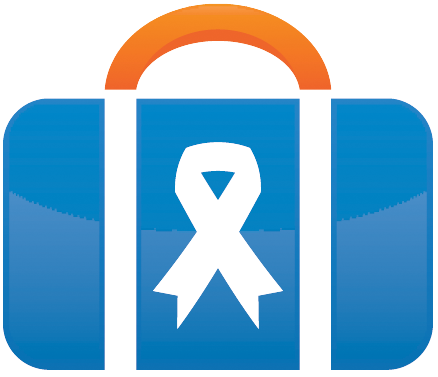Volunteers can provide an incredible amount of support during your organization’s fundraising auctions. They can help spread the word about these events, support your staff members, and help wrap up once the auctions conclude. However, without a clear strategy or training process, you won’t be able to make the most of volunteer support.
In this guide, we’ll review how you can use volunteers effectively at your next fundraising auction. Be sure to adopt the following strategies throughout your event planning process:
- Use an organized volunteer scheduling process.
- Host a pre-event volunteer training session.
- Create a streamlined communication process.
- Deploy volunteers in every aspect of your event planning.
- Ask for volunteer feedback to improve future events.
Your volunteers are part of the foundation of your auction’s success, which is why it’s crucial to offer proper training and guidance to set them up to succeed in their roles. Let’s dive in to learn more.
1. Use an organized volunteer scheduling process.
Volunteer scheduling is one of the most important aspects of keeping your volunteers organized. However, when you have a large team of volunteers, scheduling everyone manually can become quite overwhelming, considering everyone’s availability and role preferences.
To make your job easier, use volunteer scheduling software to ensure that you schedule enough volunteers for each role. Also, these tools help ensure that you don’t have any overlap that may cause volunteers to feel bored or like they aren’t needed throughout the event. With the help of volunteering scheduling tools, you can save lots of time by allowing technology to minimize administrative work.
Having self-scheduling features also allows all your supporters to view upcoming opportunities and sign up for the shifts that work best for them. This provides volunteers with the flexibility to make schedules that work with their personal lives and sign up for roles that they have an interest in and are qualified for.
2. Host a pre-event volunteer training session.
Hosting an effective volunteer orientation before your auction event ensures all volunteers will know exactly what to do on the event day. This can help them feel more comfortable and confident in their roles, boosting their satisfaction.
Hosting pre-event volunteer training sessions helps establish a foundation for your volunteers’ success and empowers them to perform with their best foot forward. Organizations that put time into planning out their training sessions are more likely to experience greater volunteer retention.
Here are some tasks that should be completed during your pre-auction training session:
- Train volunteers on their assigned roles. This includes introducing them to any equipment or software they may need to use, such as email marketing or live streaming software and tools.
- Monitor the training process. Keep an eye on volunteers throughout the training session to ensure they seem confident in their roles. This helps you determine how effective your training is and whether or not your volunteers know what to do and when. Identify which skills to focus on and plan out your training activities accordingly.
- Tailor the learning experience. Remember, every volunteer will have their own preferred way of learning, and you want your training process to run as smoothly as possible to avoid any confusion. Consider offering a variety of learning experiences with different platforms to create a successful and engaging volunteer orientation. For instance, you might offer virtual training using a combination of videos, written instructions, and diagrams.
Once their training sessions have been completed, ask your volunteers for their feedback on the orientation process to figure out how you can make the experience even better in the future.
3. Create a streamlined communication process.
To run a successful fundraising auction, you need to be clear about the roles and expectations you have for your team. Maintaining a clear line of communication ensures that all volunteers are on the same page and prepared to complete their responsibilities.
You want to keep your volunteers excited and engaged, which is why it’s essential to communicate what their roles will be throughout the auction and ensure they understand the value of their contributions.
Keep these tips in mind when communicating with volunteers:
- Use volunteers’ preferred communication platforms. Ask your volunteers what communication channels they prefer and how often they want to hear from you. Their preferred communication platforms may include group chats, video conference calls, or email. You can also segment your volunteers into smaller groups to send each group relevant information about their auction roles and responsibilities.
- Allow volunteers to ask questions before and during the auction event. The last thing you want is your volunteers feeling confused before your auction event. Let them know where to contact you if they have any questions or concerns.
By making your communication a two-way street, you can deliver important messages while also allowing volunteers to communicate their opinions, ask questions, and provide feedback. This ensures that volunteers have an avenue to make their voices heard.
4. Deploy volunteers in every aspect of your event planning.
Keeping your volunteers engaged in every aspect of your event planning allows them to become an important part of the event itself! Your volunteers want to know that their contributions are truly making a difference. Offer volunteers opportunities to engage prior to your fundraising auction, during the event, and after the auction:
- Pre-event: Volunteers can help promote your event on social media, email, and by sending direct mail invitations to major or heavily-involved supporters. This can help drive registrations and create awareness among their family and friends.
- During the event: Volunteers can update your social media pages, help run the live stream for your virtual segment, and keep track of bids.
- Post-event: Volunteers can write and send thank-you notes to attendees as a form of appreciation and gratitude. They can also help update your social media accounts, letting everyone know how amazing your event was and thanking everyone who came.
Remember, volunteer engagement isn’t over once your event concludes. Be sure to thank all your volunteers for making your fundraising auction a success. You can post on your social media or website blog about how hard your team has worked to offer the best experience possible for all attendees.
5. Ask for volunteer feedback to improve future events.
Who knows more about the effectiveness of your fundraising auctions better than your on-the-ground volunteers? After your auction concludes, you can send volunteers surveys that not only ask about their experience as a volunteer but also how they think your auction went in general.
As mentioned, it’s essential to ask for feedback from your volunteers because it makes them feel valued and like their opinions matter to your organization. This also helps you improve your auction events and make them more appealing for all your supporters, boosting supporter retention in the long run.
InitLive’s guide to volunteer surveys recommends asking questions like:
- How satisfied were you with your volunteer experience?
- Is there anything you would change about the experience?
- How would you rate your level of preparedness for auction day?
- Would you participate in an auction event again in the future? Why or why not?
- How were your interactions with event attendees? How would you rate their level of engagement with the auction activities?
Use volunteers’ responses, along with other key indicators such as event attendance and participation rates, to assess the success of your auction. This also allows your nonprofit to determine the effectiveness of your training, communication, and the satisfaction of your volunteers.
Now that you’ve learned how to use your volunteers effectively at your fundraising auction, it’s time to start planning! When volunteers are trained and prepared, they can provide the greatest amount of support throughout your auction. Think about how you would like to divide your team, explain your desired outcomes to volunteers, and show gratitude for all their hard work. Good luck!




